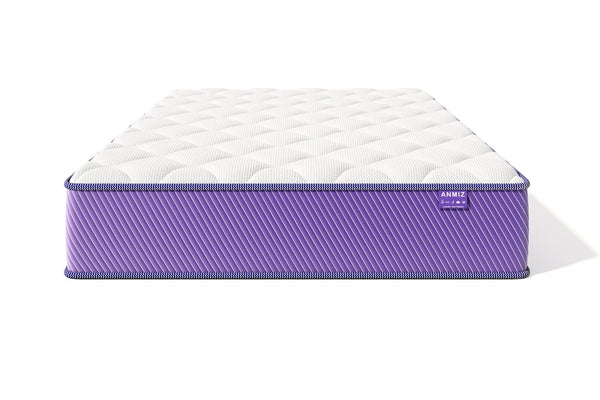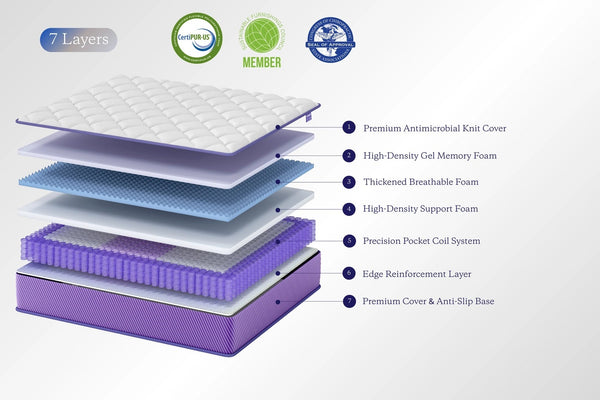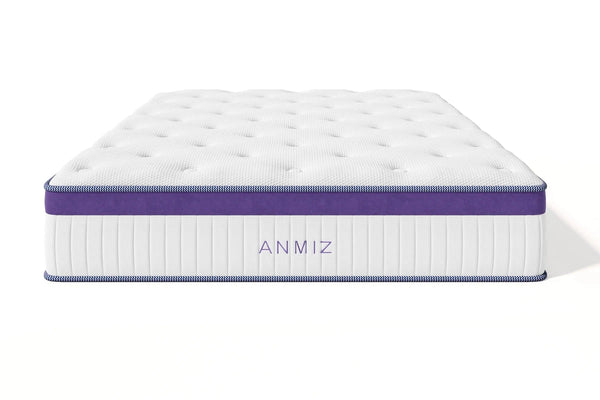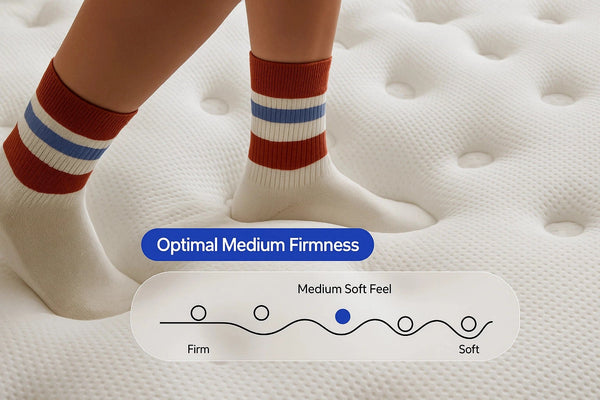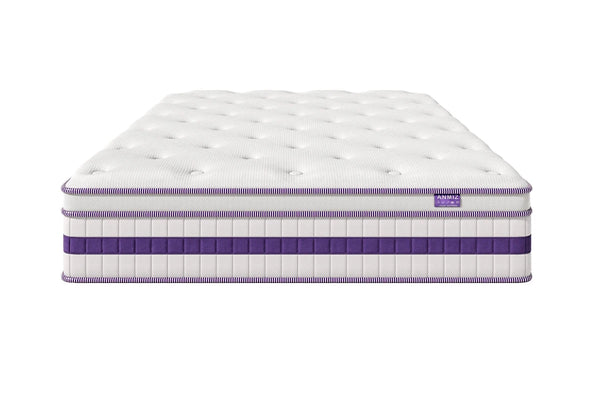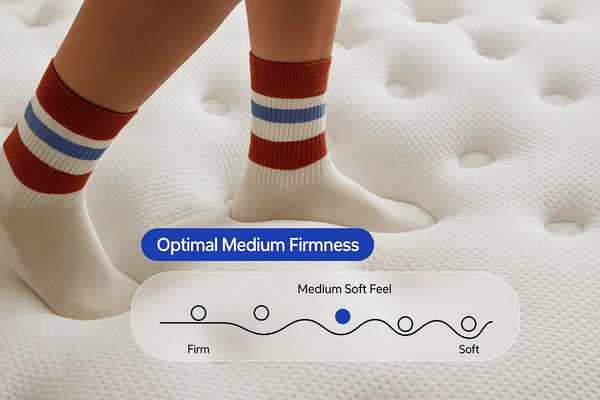The Best Mattress for Back Trouble: Your Key to Pain-Free Nights
Waking up with back pain can turn what should be a refreshing morning into a frustrating ordeal. If you’re struggling with discomfort, it might be time to rethink what’s under you. Finding the best mattress for back trouble isn’t just a luxury—it’s a real game-changer for your spine health and overall well-being. Let’s dig into how the right mattress can transform your nights and, frankly, your life.
Why Choosing the Right Mattress Matters More Than You Think
Spinal Support: The Secret to Restful Sleep
Think of your spine as the foundation of your body. When it’s not properly supported during sleep, everything else suffers—your muscles tense up, your joints stiffen, and that annoying backache lingers. A poorly designed mattress can throw your spine out of alignment like a wobbly tower of blocks.
In contrast, the best mattress for back trouble offers balanced support, ensuring your back maintains its natural curves. According to research published in The Lancet, medium-firm mattresses dramatically reduce lower back pain compared to extra-firm ones, busting the myth that harder is always better.
Good Sleep Starts With Good Alignment
Ever woken up feeling more exhausted than when you went to bed? Misalignment is often the sneaky culprit. Poor posture at night stresses muscles and creates pressure points. Over time, this wears down not just your energy but your health too. Investing in a mattress that cradles and supports your spine properly can flip the script on your sleep struggles.
Need a real-world comparison? Imagine walking all day in unsupportive shoes—your back hurts, right? Now imagine sleeping eight hours on a bad mattress. No wonder you feel wrecked in the morning!
The Long-Term Payoff: Why Support Matters
Prevent Chronic Pain Before It Starts
Choosing the right mattress isn’t just about short-term comfort—it’s about long-term health. A supportive mattress prevents unnecessary stress on your spine and muscles, reducing your risk of developing chronic pain as you age. Proper alignment also helps you breathe easier, improves circulation, and even boosts mood and cognitive function.
Wouldn’t you rather prevent problems now instead of treating them later?
Better Sleep = Better Health
Studies show that better sleep quality enhances everything from memory to metabolism. Simply put, when your mattress supports you properly, your body can heal and recharge. It’s not just about feeling rested—it’s about giving your body the best shot at daily performance and long-term resilience.
Key Features to Look for in the Best Mattress for Back Trouble
Firmness: Finding the Sweet Spot
Medium-firm mattresses consistently come out on top in studies related to back pain. Why? Because they provide enough pushback to support your spine but still have enough give to cushion pressure points like your shoulders and hips.
Too soft, and you sink; too hard, and you’ll feel like you're sleeping on concrete. A good medium-firm mattress feels like lying on a supportive cloud—substantial but cozy.
Material Matters: Foam, Latex, or Hybrid?
Memory foam mattresses contour closely to your body, relieving pressure points and promoting spinal alignment. Latex mattresses offer a firmer, more responsive feel while being naturally breathable—great if you sleep hot. Hybrids blend coils and foam layers, offering a "best of both worlds" solution.
Here’s a quick comparison:
| Material | Benefits | Drawbacks |
|---|---|---|
| Memory Foam | Pressure relief, body contouring | Can retain heat |
| Latex | Responsive support, cooling | Heavier and pricier |
| Hybrid | Balanced support and comfort | Can be heavier, more costly |
Match Your Sleep Position
Not all sleepers are created equal! Your preferred sleeping position should influence your mattress choice:
- Side Sleepers: Need softer surfaces to cushion shoulders and hips.
- Back Sleepers: Do best with medium-firm support to maintain the spine's natural curve.
- Stomach Sleepers: Require firmer mattresses to keep hips from sinking too much.
Sleeping wrong for your position? That’s like running a marathon in the wrong shoes—your back pays the price.
Tips for Buying the Perfect Mattress
Take Advantage of Extended Trials
Buying a mattress isn’t something you can decide in five minutes at a showroom. Look for brands that offer 100-night trials or more. Why? Because it takes time for your body to adjust and truly feel if a mattress is working for you.
Would you buy a car after just a five-minute test drive? Exactly.
Temperature Control Is Key
If you’re waking up sweaty, you’re not alone. A mattress with temperature-regulating features—like gel-infused foams or breathable covers—can make a world of difference, especially if you’re a hot sleeper.
Hot nights are the enemy of deep, restful sleep. Look for cooling materials to keep your body at an ideal temperature all night long.
Beyond the Mattress: Boosting Sleep Quality Even Further
Rotate Regularly to Prevent Sagging
Mattresses don’t last forever. Rotating your mattress every 6 months can extend its lifespan and maintain even support. It's a simple habit that pays dividends over time.
Pick the Right Pillow
Your mattress is half the battle; your pillow is the other half. Choose one that complements your sleep style and maintains your neck’s natural alignment with your spine. A mismatch here can undo all the good your mattress does!
Optimize Your Sleep Position
Simple changes can yield big results. Side sleepers should try placing a pillow between their knees to relieve pressure on the lower back. Back sleepers can benefit from a pillow under their knees to maintain spinal curves.
Maintaining Your Mattress for the Long Haul
When to Replace Your Mattress
Even the best mattresses wear out eventually. Experts suggest replacing them every 7 to 10 years—or sooner if you notice sagging or loss of support. Holding on to an old mattress is like clinging to worn-out sneakers—bad for your comfort and worse for your back.
Signs It's Time for an Upgrade
- Visible sagging or indentations
- Waking up with stiffness or aches
- Better sleep in other beds (like hotels)
Notice any of these signs? It’s not you—it’s your mattress.
Conclusion: Invest in Your Spine, Invest in Your Life
Choosing the best mattress for back trouble isn't just about better sleep—it's about better living. A supportive mattress enhances your spinal health, boosts your sleep quality, and helps you wake up feeling energized and pain-free. Don't rush the decision; take your time, test thoroughly, and consult experts if needed.
Think of it this way: investing in a quality mattress is investing in years of better mornings, better health, and a better you. Isn’t that worth it?
Frequently Asked Questions (FAQ)
How often should I replace my mattress?
Most experts recommend replacing your mattress every 7 to 10 years to ensure it continues to offer the support and comfort your back needs.
Is a firmer mattress always better for back pain?
Not necessarily. Studies suggest that medium-firm mattresses provide a better balance of support and comfort for most people with back trouble.
Can I use a mattress topper instead of buying a new mattress?
A high-quality topper can temporarily enhance comfort and adjust firmness, but it won’t fix issues caused by an old, sagging mattress.
What’s the best sleep position for reducing back pain?
Side sleeping with a pillow between your knees or back sleeping with a pillow under your knees are both effective positions for reducing back strain and maintaining spinal alignment.

